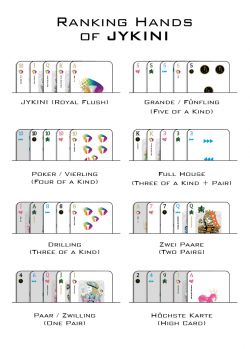The Game ...
a brandnew Edition
of Poker for
Family & Friends
Based on rules of Holdem Poker, a Dice Game called “Mäxchen” and Dice Poker – during this game your need your poker face for sure! Game rules are easy and fun to play, but its challenging to win. Are you a cards specialist? Created as a party and family game, there is also the posibility of personalisation, such as individual logos designs or corporate identities of companies.


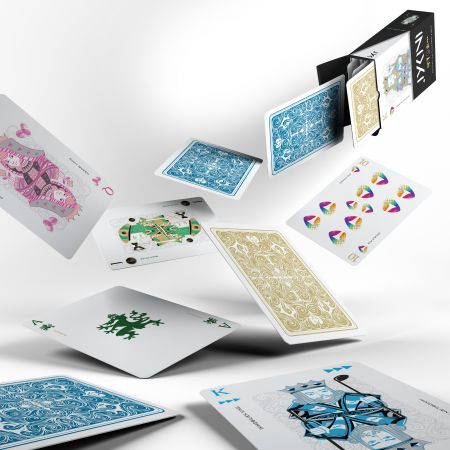

JYKiNi is a family, parlour and party game in which it is not about how good your hand is in your hand, but how well you sell it to the other players. It is both strategically more playable and with gut feeling. A combination of the two ultimately leads to success.
The card game consists of game situations from Texas Holdem Poker and the dice game Mäxchen “21” (or Meier). The game can be played in duel, from 1 to 13 cards or with up to 13 players from 1 to 4 cards. The recommended game variations are listed in more detail below. In the course of all game variants and the entire course of the game, the colouring of the individual cards is irrelevant – with the exception of the JYKiNi cards, which are defined in gold on the front and back.
Aim of the game
In the course of the game, each player receives cards when he or she loses a game round. The winner at the end of the game is the player who does not exceed the maximum number of cards “x” at the end.
The game play of JYKiNi
The game is played with a deck of 5 x 13 playing cards of international design and values (from 2 low to Ace high):

In each round of the game, the “announced” card is determined from the total number of cards in play. As in poker, 5 cards always count, but in this case not only from your own hand, but from the cards of all other players. During the course of the game, it is therefore important to pay attention to who announces what, what is raised for, and to remember what was said. But now first of all to the beginning of the game.
The loser of the last round mixes and distributes the cards. The first round begins with the player who draws the lowest card when the pile is removed. In the event of a tie, there is a tie in the remaining group until one player is left. The dealer shuffles the cards again and then distributes (at the beginning) the number of cards “x” to each player. He is careful not to make any mistakes, otherwise the cards must be dealt again. This is the case with every deal during the course of the game. After the deal, the player to the left of the dealer always has the right to make the first announcement. He looks at his card and its value (e.g.: 7) to make a first loud announcement – he can “choose” freely from all card values (e.g.: 3 or also King), if he wants to, but also name the actual value of his card! Each player still keeps his cards face down, just like in poker. Only the player who makes the first announcement has a free choice. Afterwards the announcement goes clockwise from player to player. If a player has not started the round, the announced value must ALWAYS be higher than that of the first player.
Each player, after the first player, now has a choice in every situation:
Jeder Spieler, nach dem ersten Spieler hat nun in jeder Situation die Wahl:
-
√ Yes
… he believes his foreplayers: But then he must also hope to outdo their announcement with his own card. If the true value of the card is sufficient, he can name it, BUT also invent a value of his own. Regardless of what he announces, the value he communicates to his following players must be higher than the value last announced by the foreman if necessary, with improvisation.
It is always possible to announce any “higher” card combination, regardless of the player’s progress. But will too high a risk pay off?
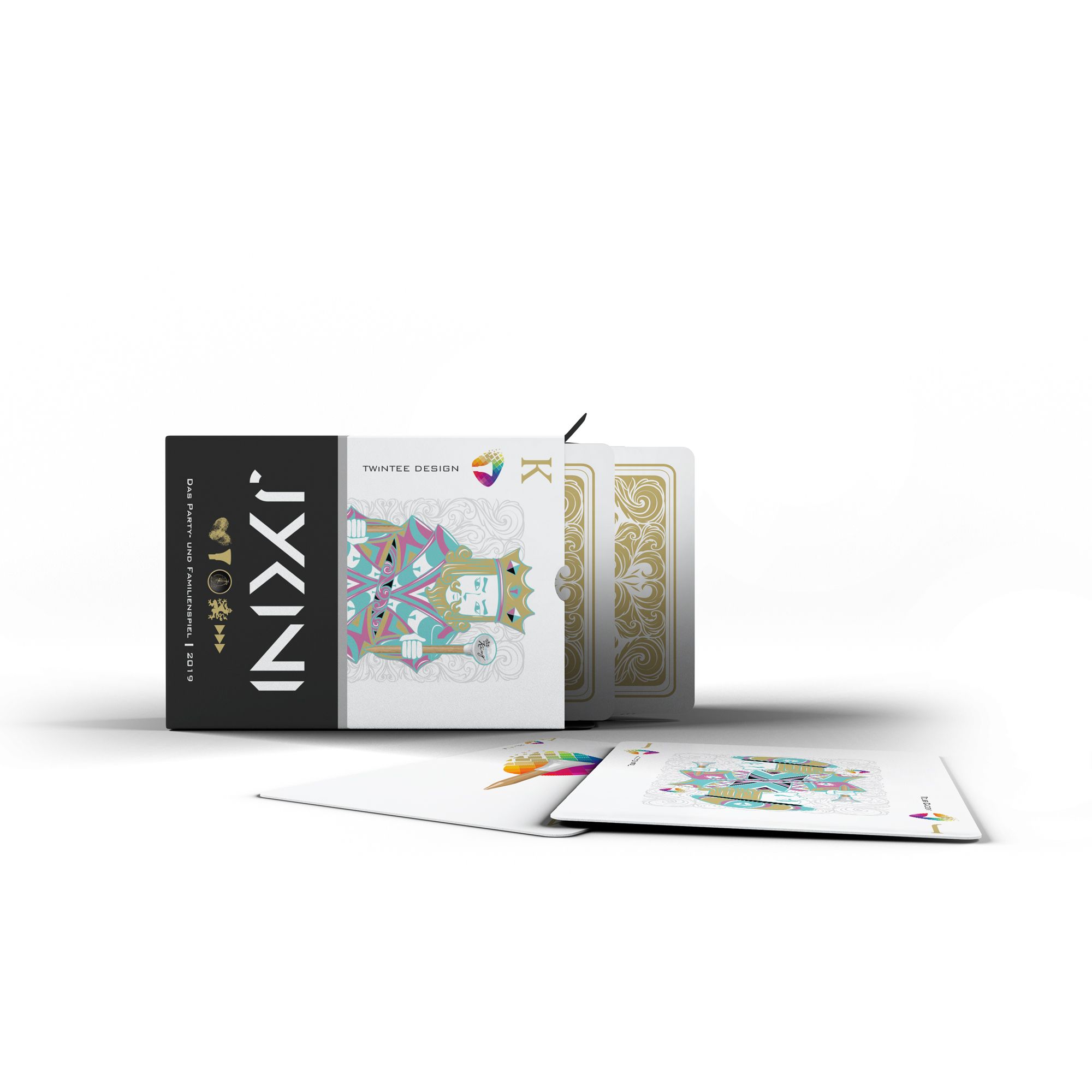
-
No
… he doesn’t believe him, so he suspects that his foreplayers made something up: Then he asks the foreplayers and all the other players to reveal the cards to determine what value is actually present. If the announced value (e.g.: 3 or king) was not represented in the card pool, the previous and thus lying player is punished by being dealt an additional card in the next round (i.e. all players continue to receive “x” cards, only that player receives +1 cards). However, if the announced value was present, he himself is punished – thus he receives the additional card.
If a new value is announced, the next player has the choice – and so on and so on.
The round ends only when one of the players accuses his foreplayers of lying, or when no more increase in value (through the JYKiNi ROYAL FLUSH) is possible. A new/next game round always starts with the person to the left of the loser of the previous round, who is also the new dealer. When a hand is revealed, all the cards in the other players’ hands must always be shown. A combination of cards of higher value than the “announced” one does NOT release from losing. After each round, the loser of the preliminary round is dealt one card more, up to a certain maximum number of players. If a player has reached the maximum number of cards (e.g.: if there are 10 players, there are 5 cards) and is revealed as the loser in the current round, with his 5 cards in hand, this means that he is eliminated for good. The player who still has cards in his hand wins.
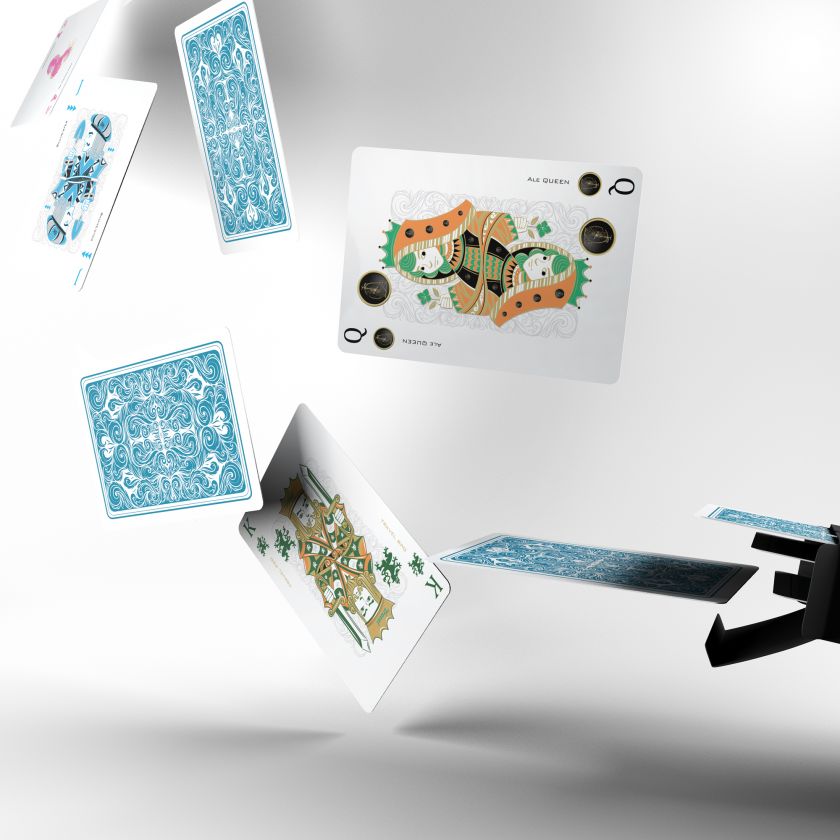
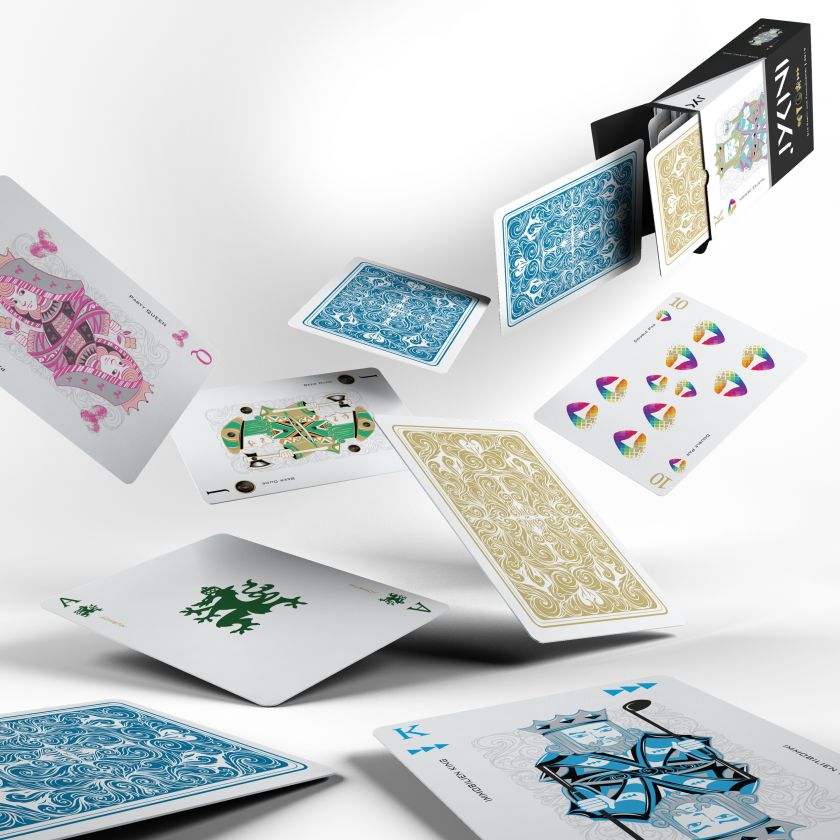
Of course, the more cards you hold in your hand, the more chance you have of influencing the game, as values can be combined as the game progresses. But the risk of being eliminated also increases.
Maximale Anzahl
an Handkarten pro Spieler vor dem Auscheiden
With 5 to 10 players, playing from 1 to 5 cards is the most useful and popular. The fast game form with max. 3 cards per player is called “JYKi”.
4   to   7 players – from “x” to +5 cards
8  to 11 players – from “x” to +4 cards
12 or 13 players – from 1 to 4 cards
x) … is the freely selectable number of start cards, which must be between 1 and a maximum of 5 cards. The card limit before leaving should be chosen according to available time.
Exceeding this limit is not sensible.
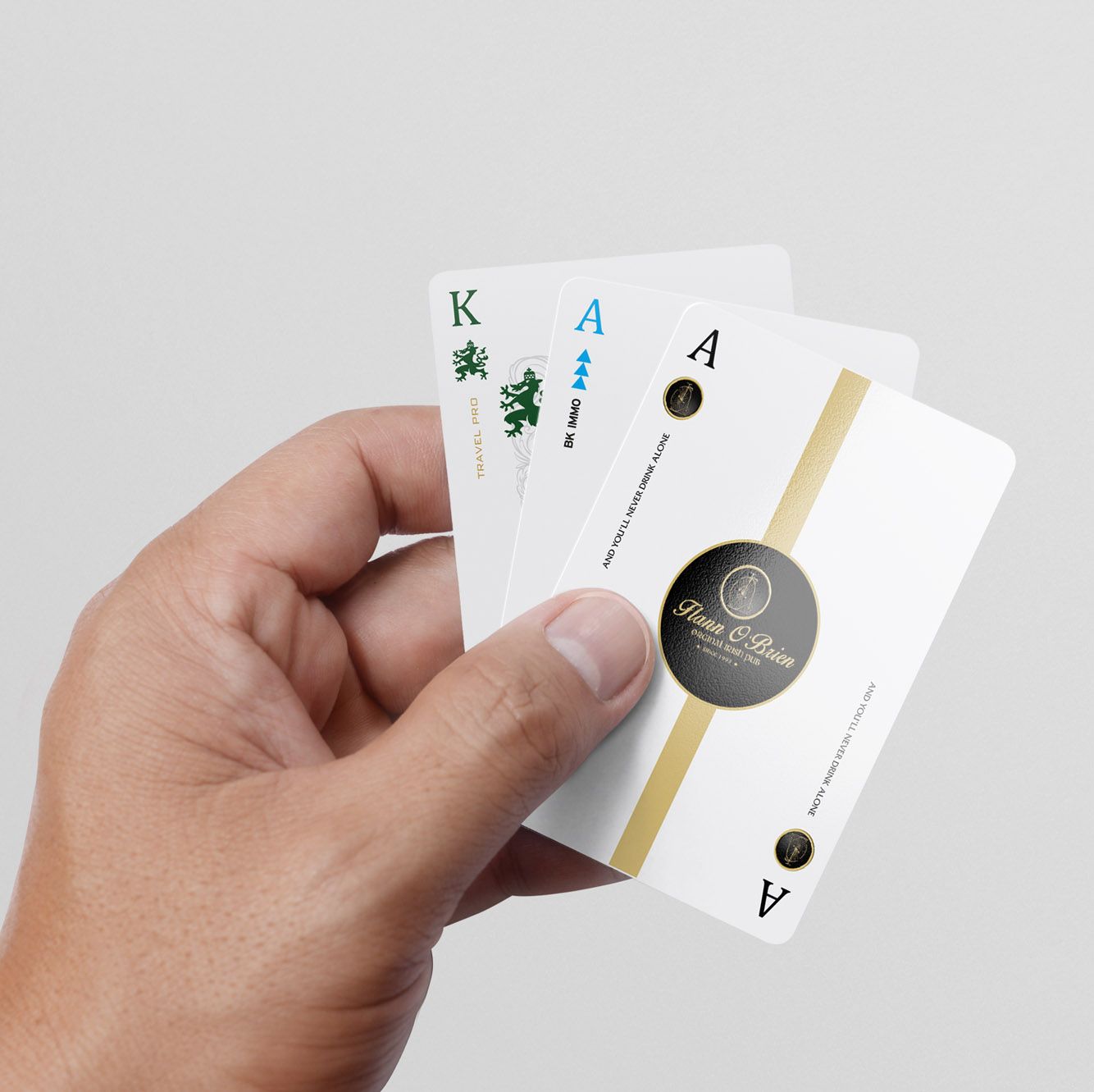
The Gambling
If a value is said to be high or unrealistic in relation to the cards dealt, any player can call to reveal at any time OR try his luck at the highest value in the game – the JYKiNi Flush! When the word JYKiNi is called, the game is automatically ended in each round, so that the player has to hang up and the next player in the seating order may also lose. A JYKiNi is a Royal Flush (i.e. 10, J, Q, K, A) of those 13 cards that are colour-differentiated on the back and therefore stand out on both sides of the deck.
Note: If you have a large number of cards dealt, it is often the case that all 13 JYKiNi cards are dealt – so be careful and observe carefully.
Good game, meal and cheers…
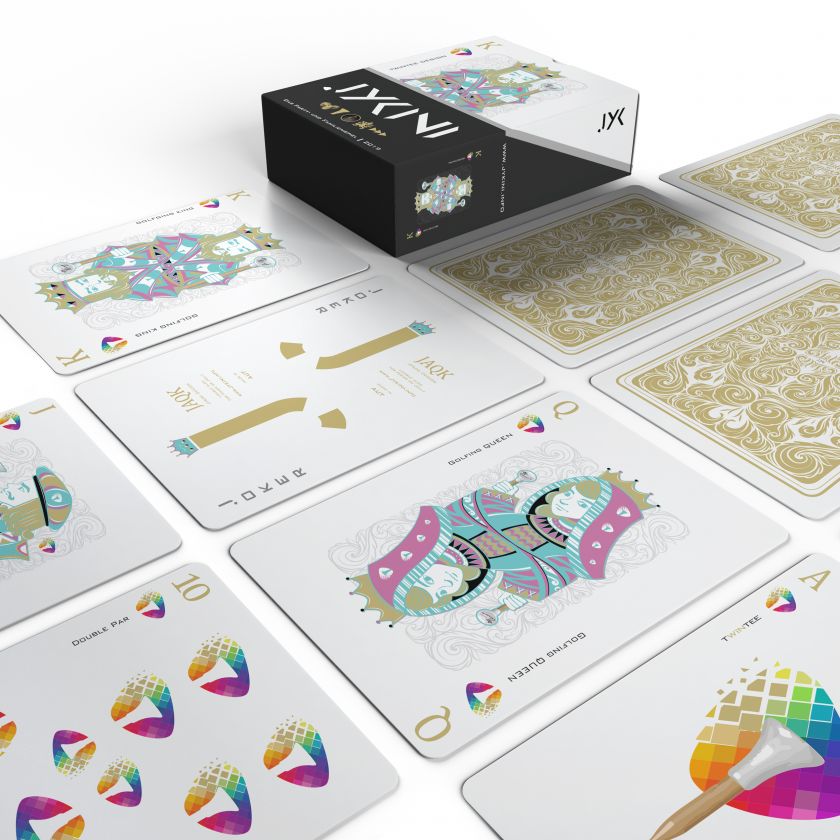
JYKiNi | Royal Flush
Become a Partner
Find Us
JYKiNi | #pokercards
Poststraße 12
A-8724 Spielberg

 IMMO GmbH
IMMO GmbH












